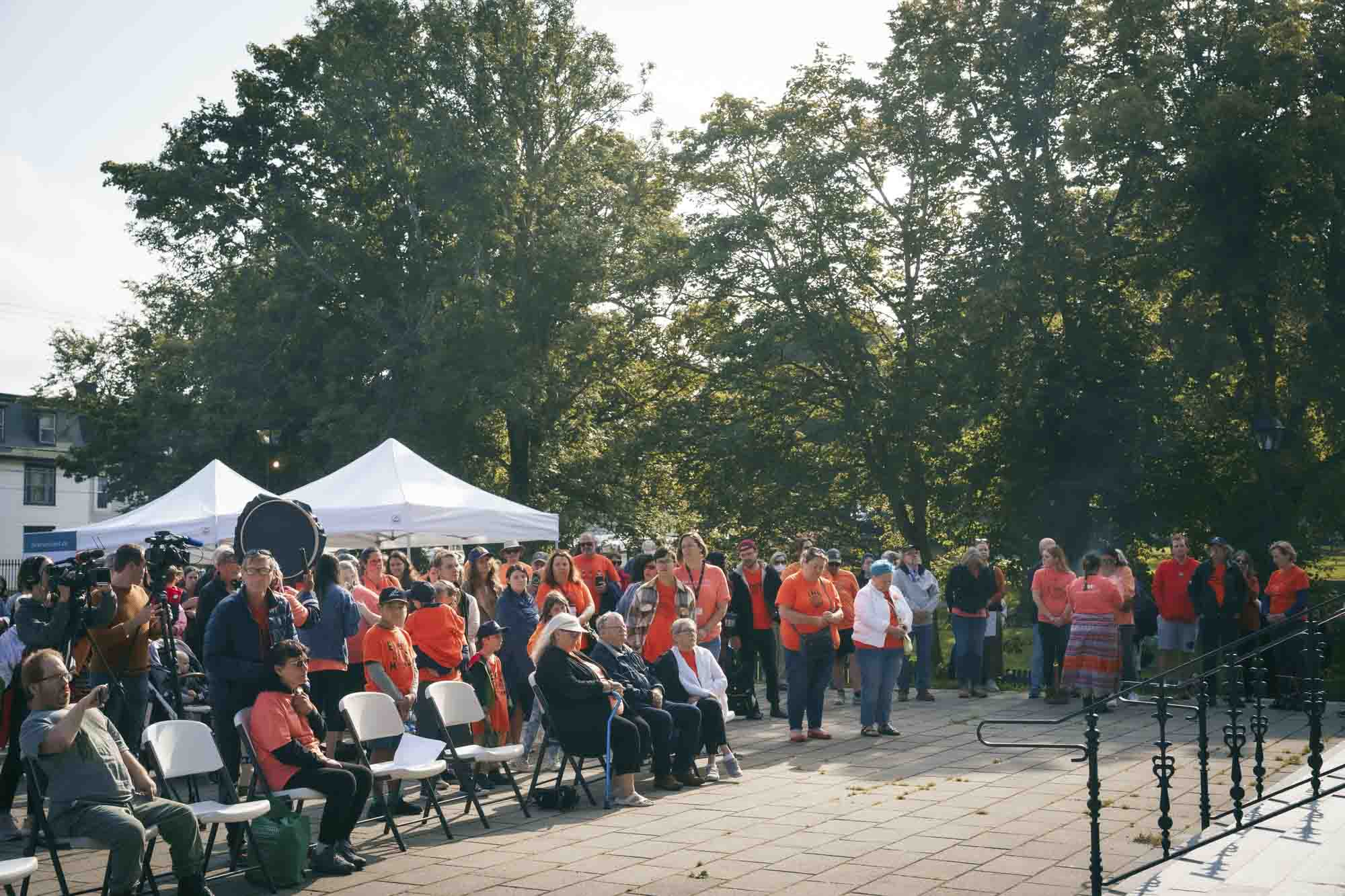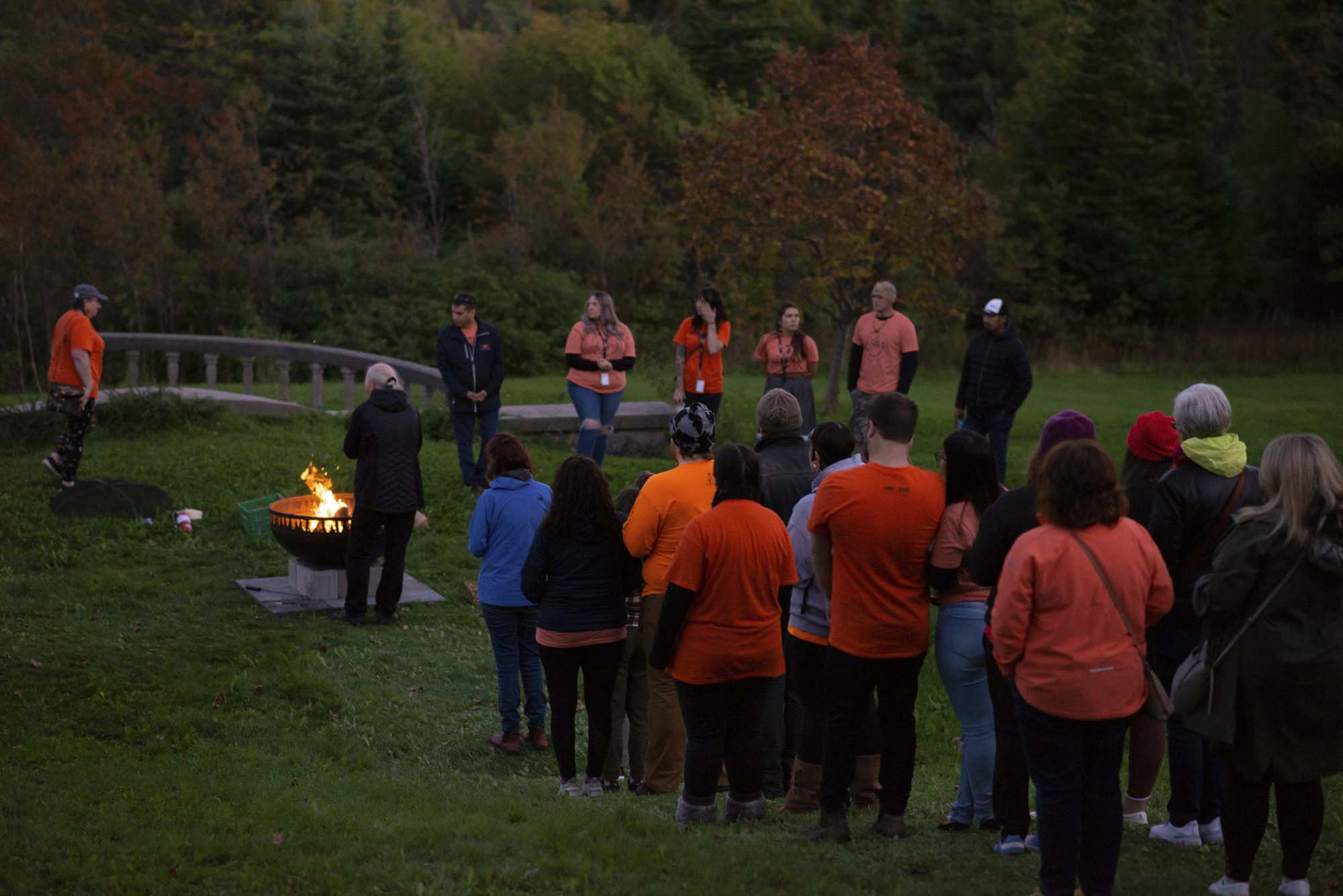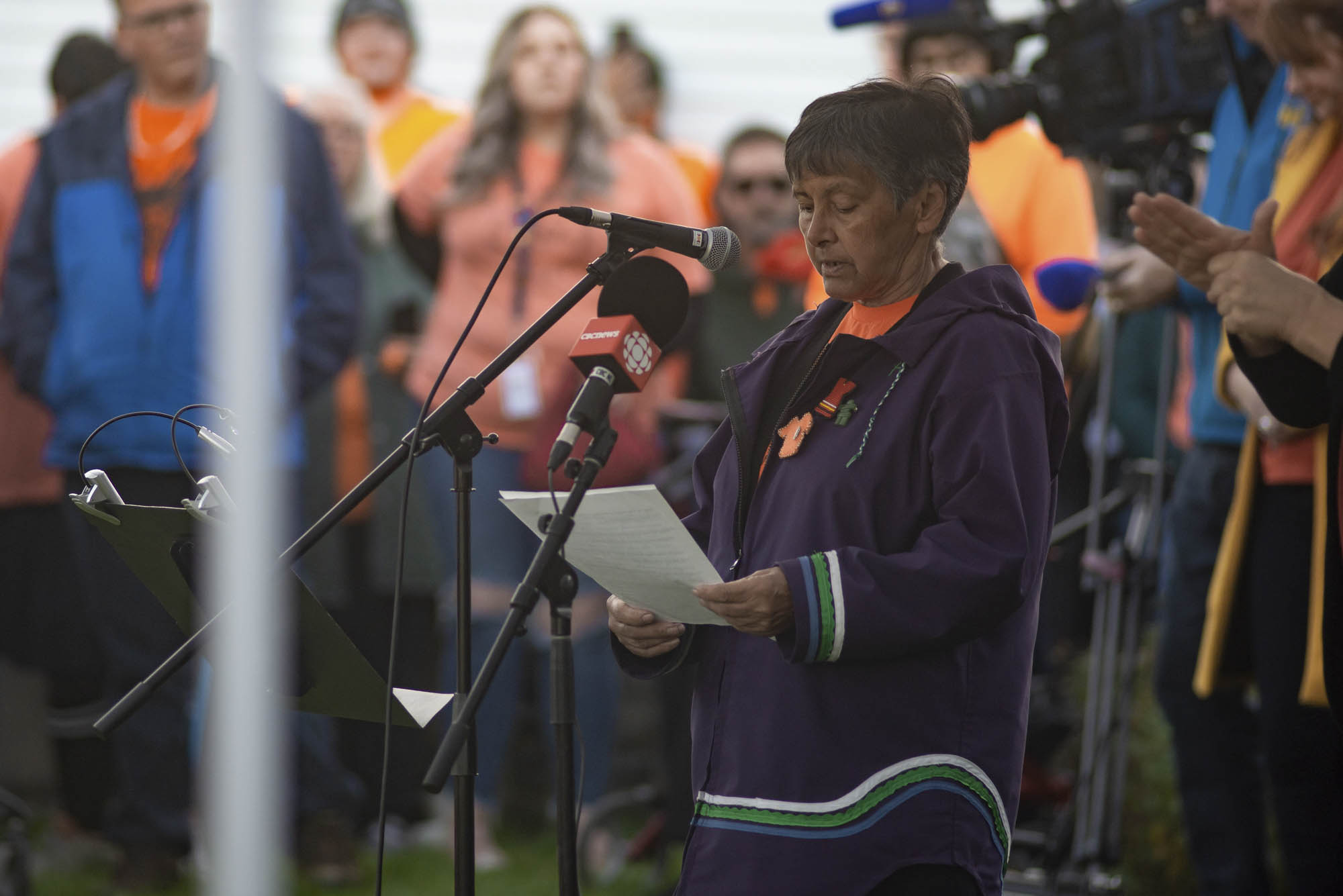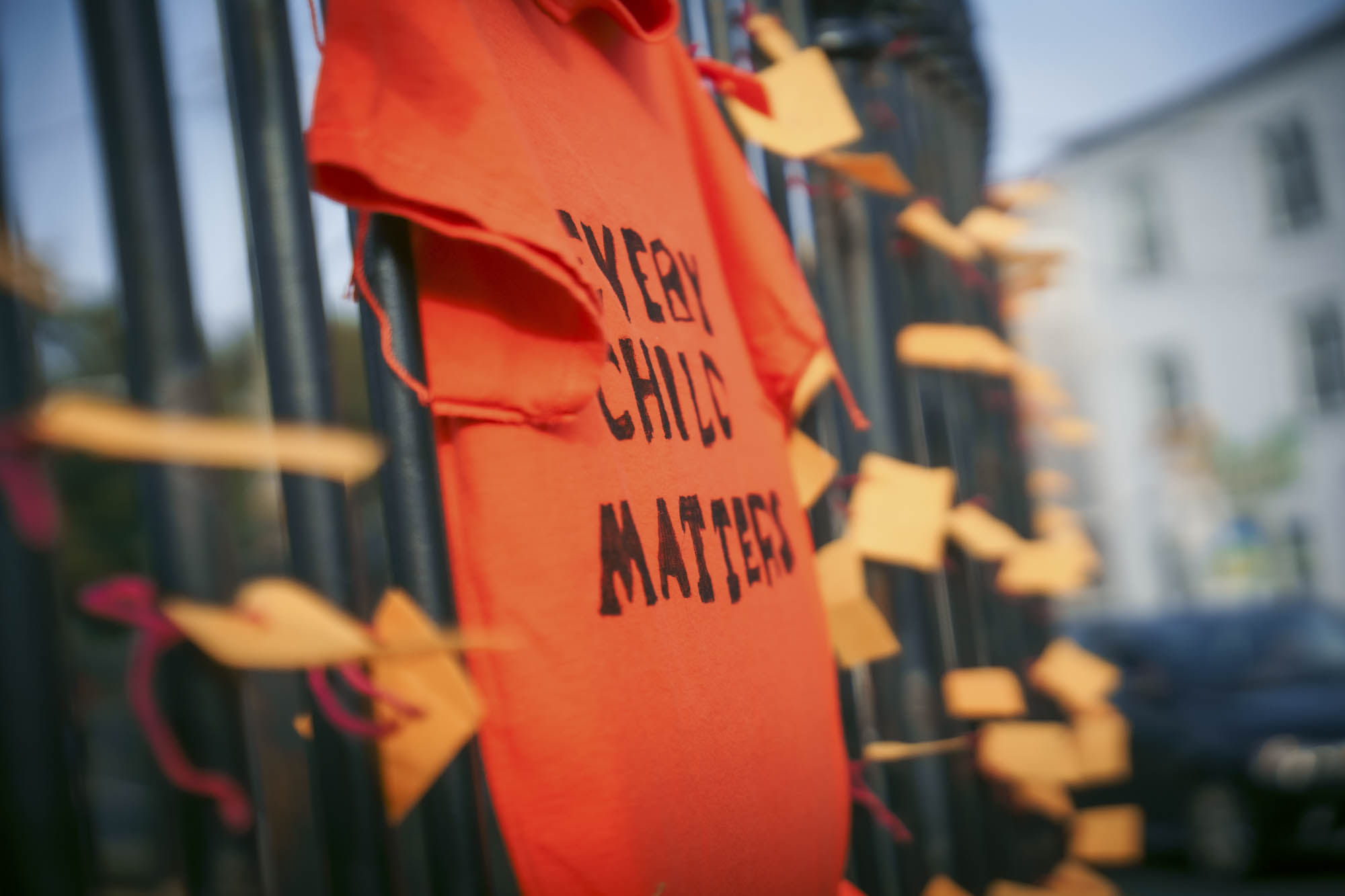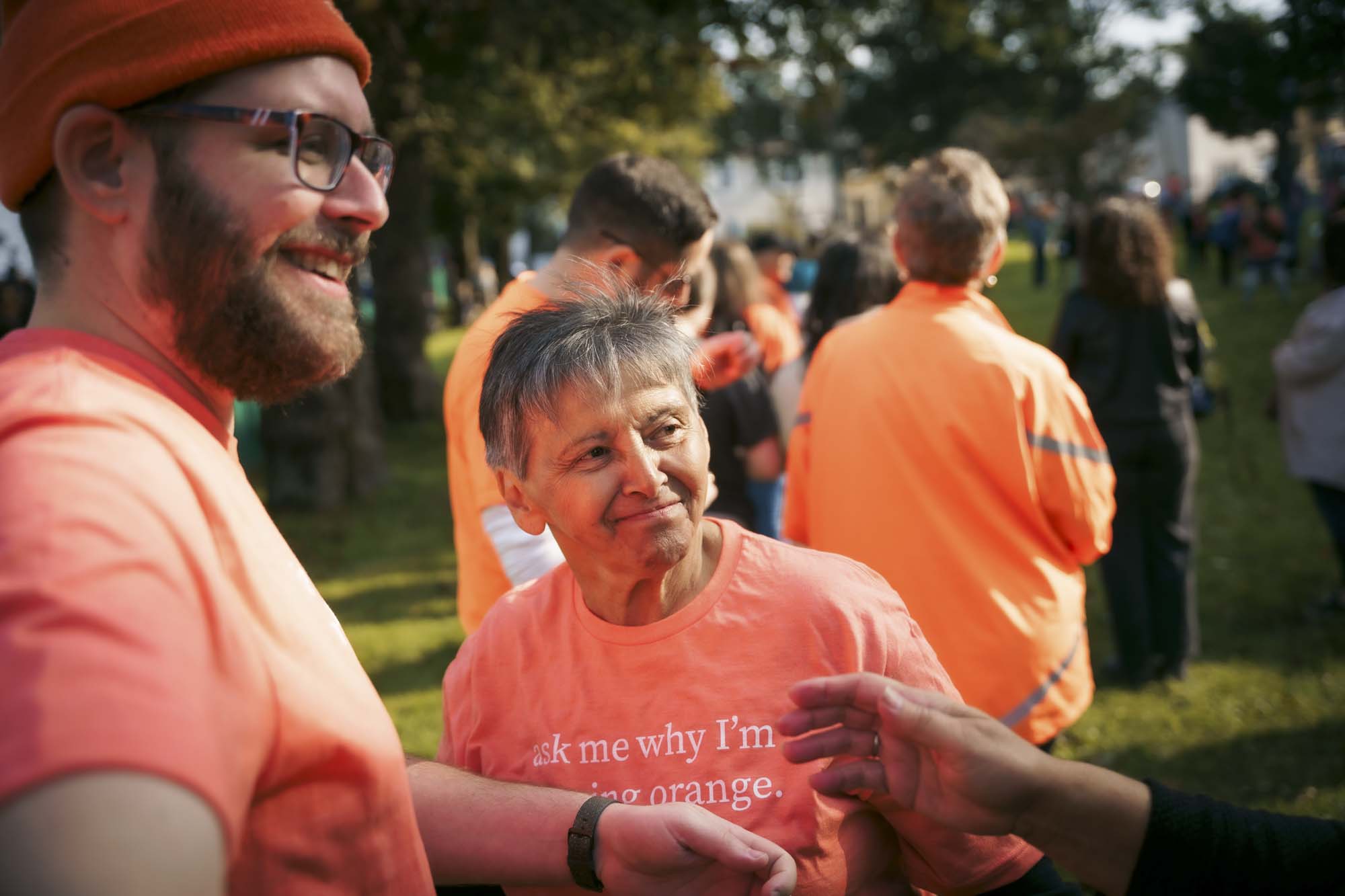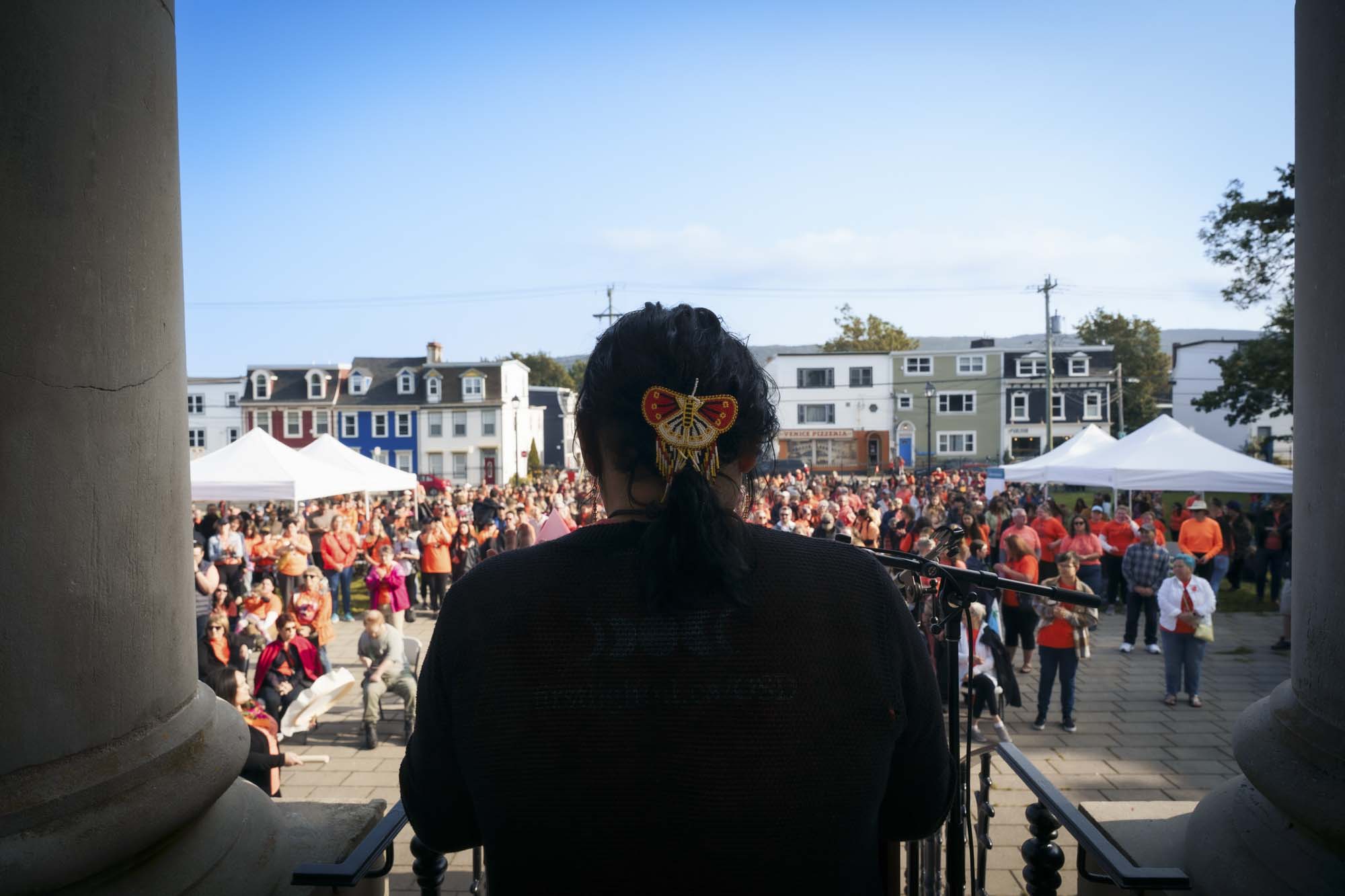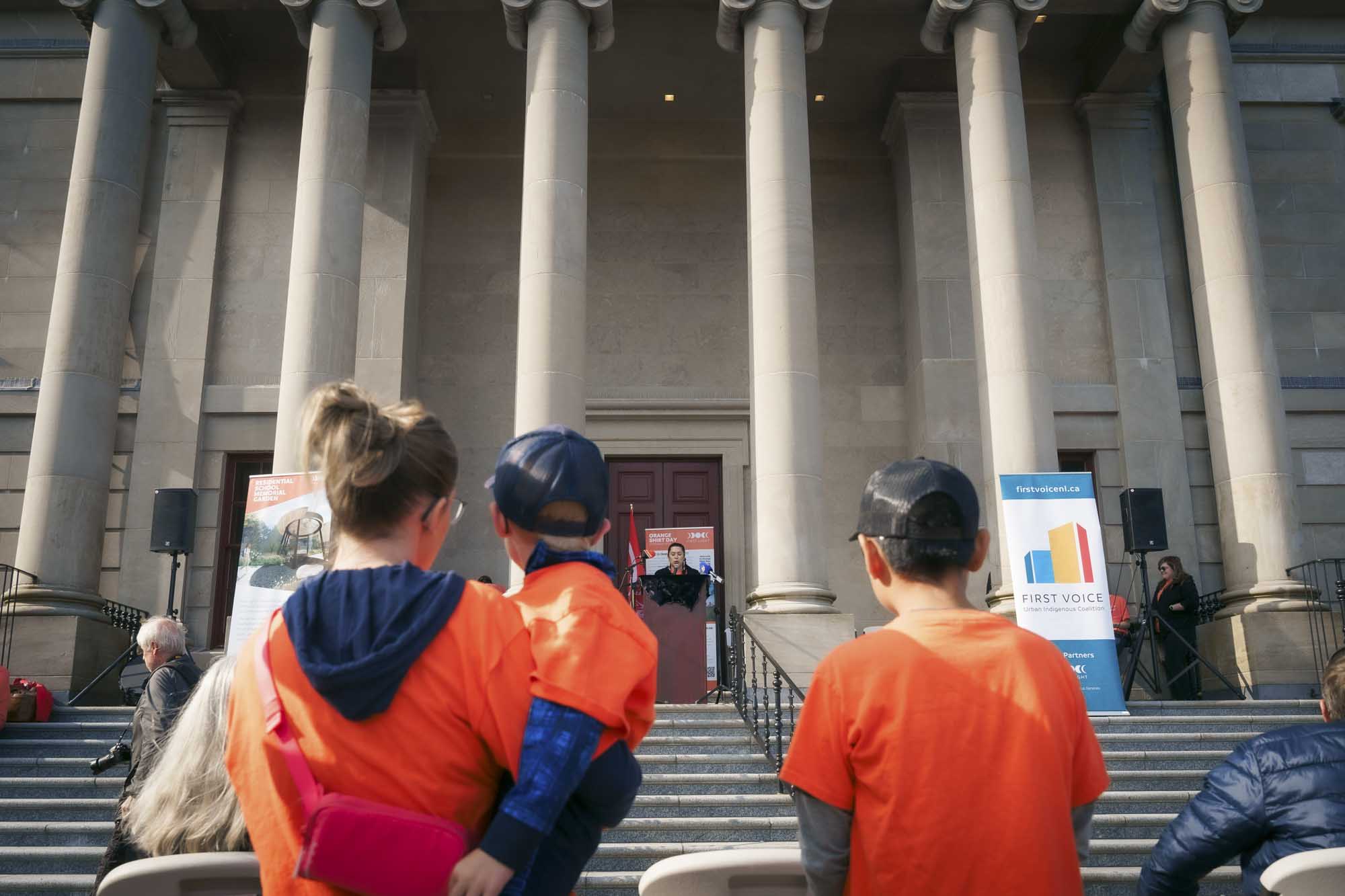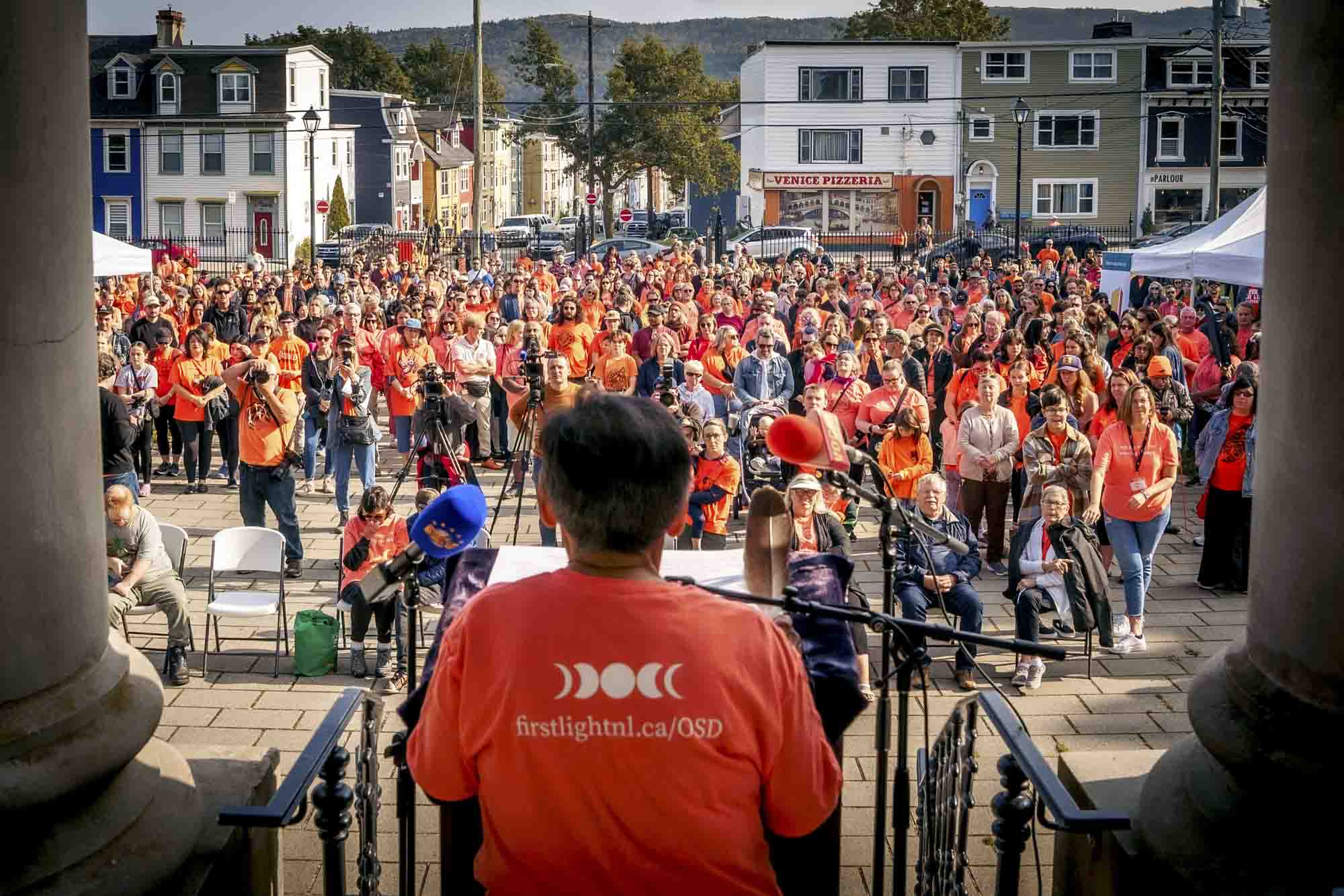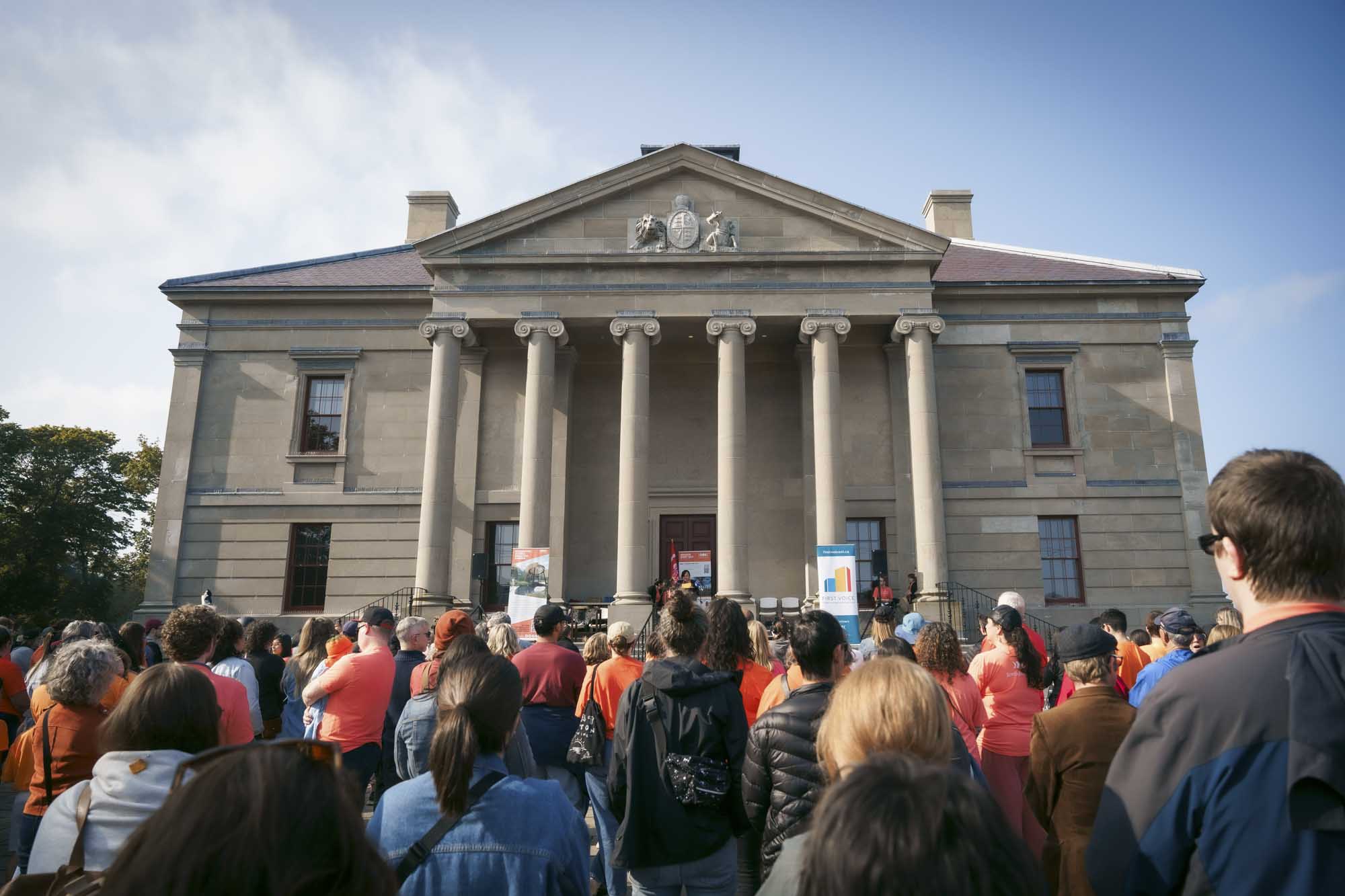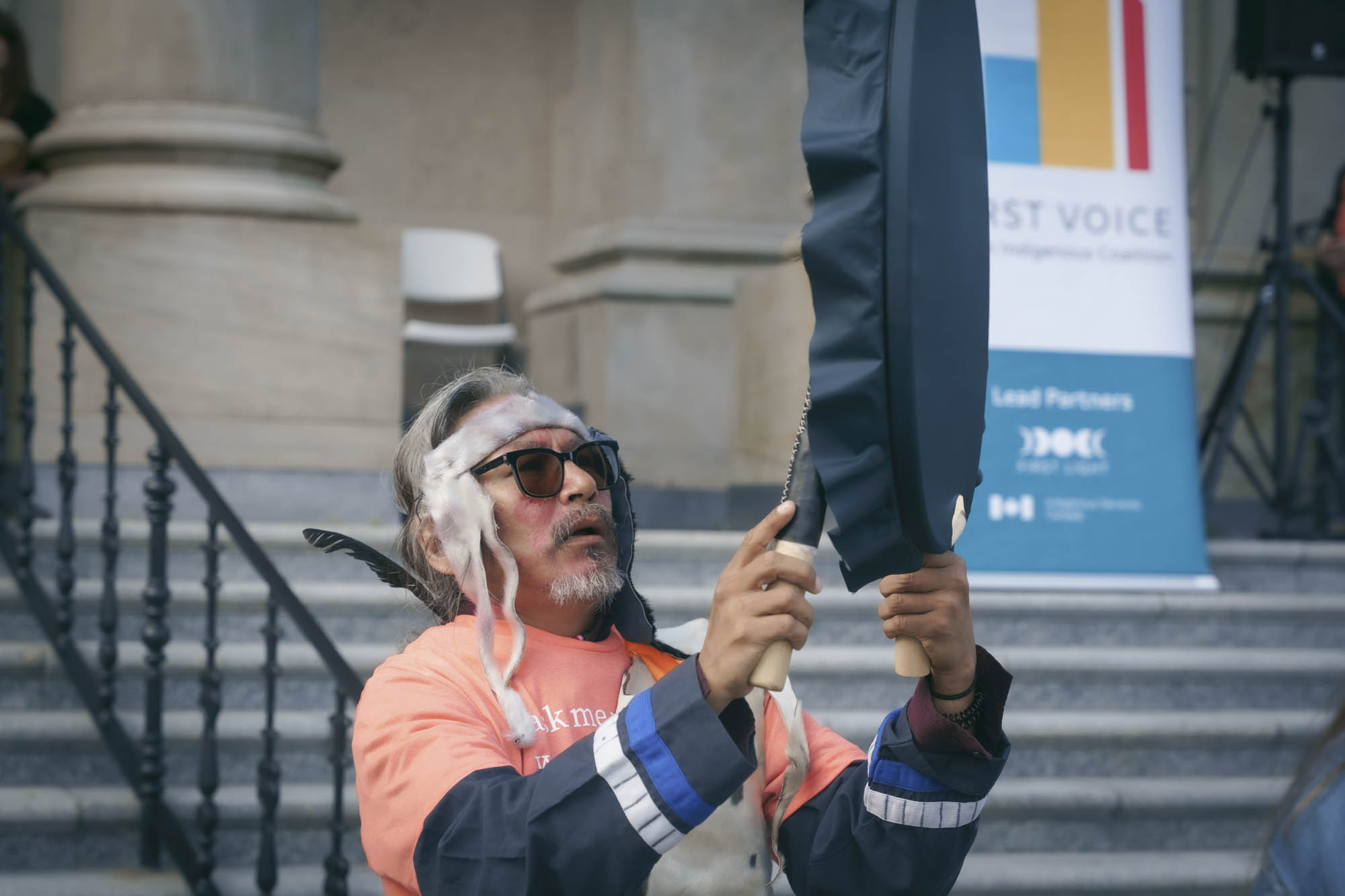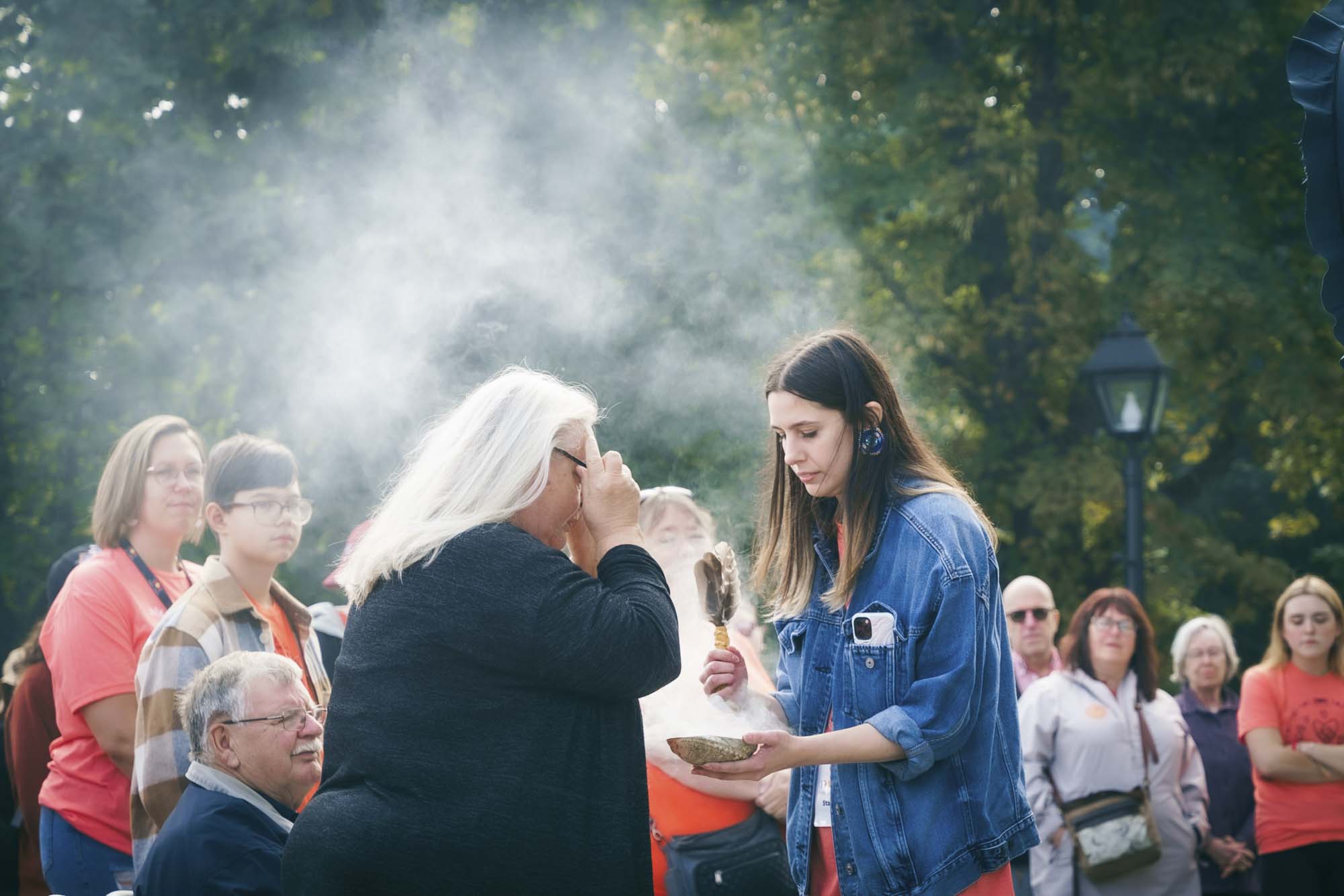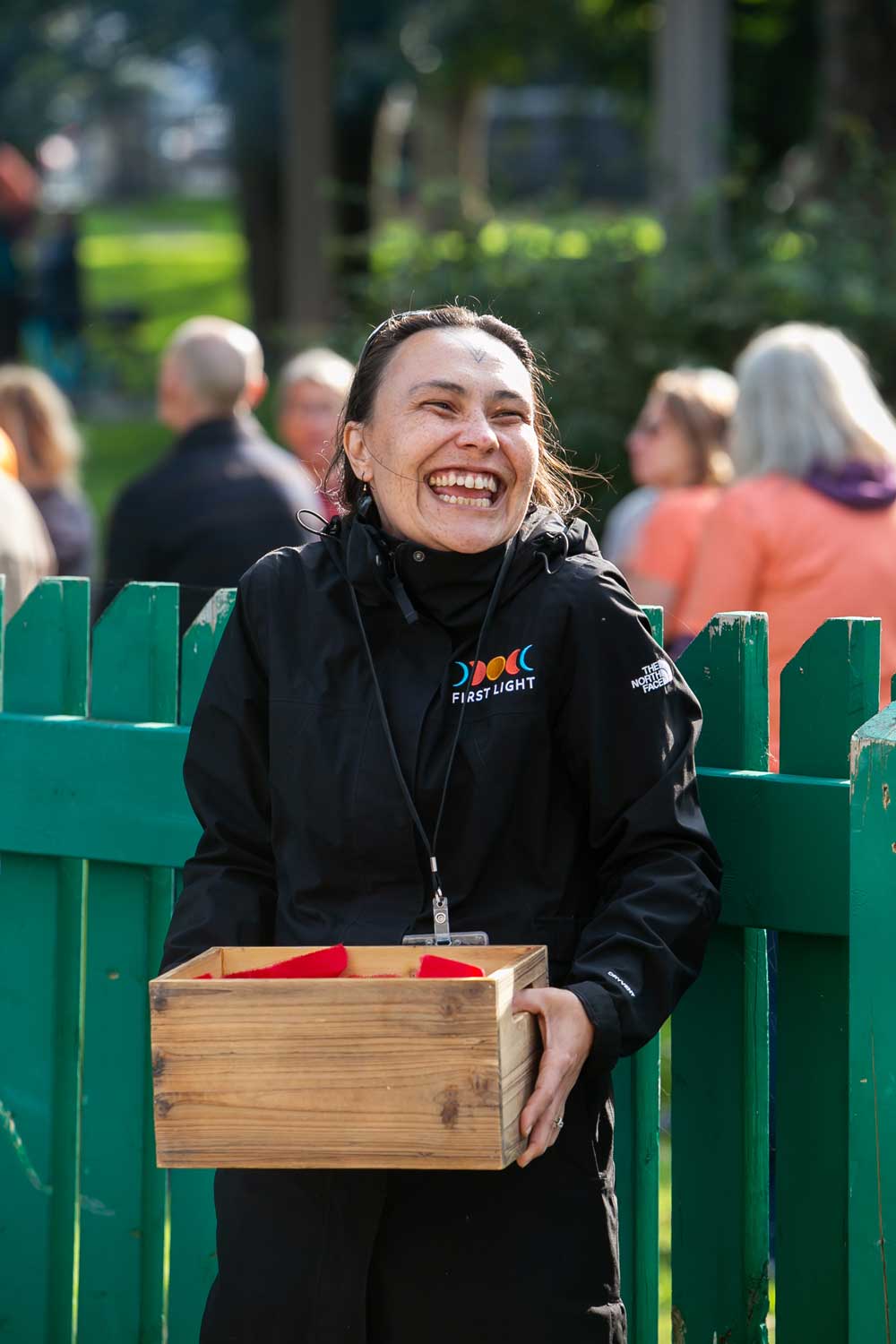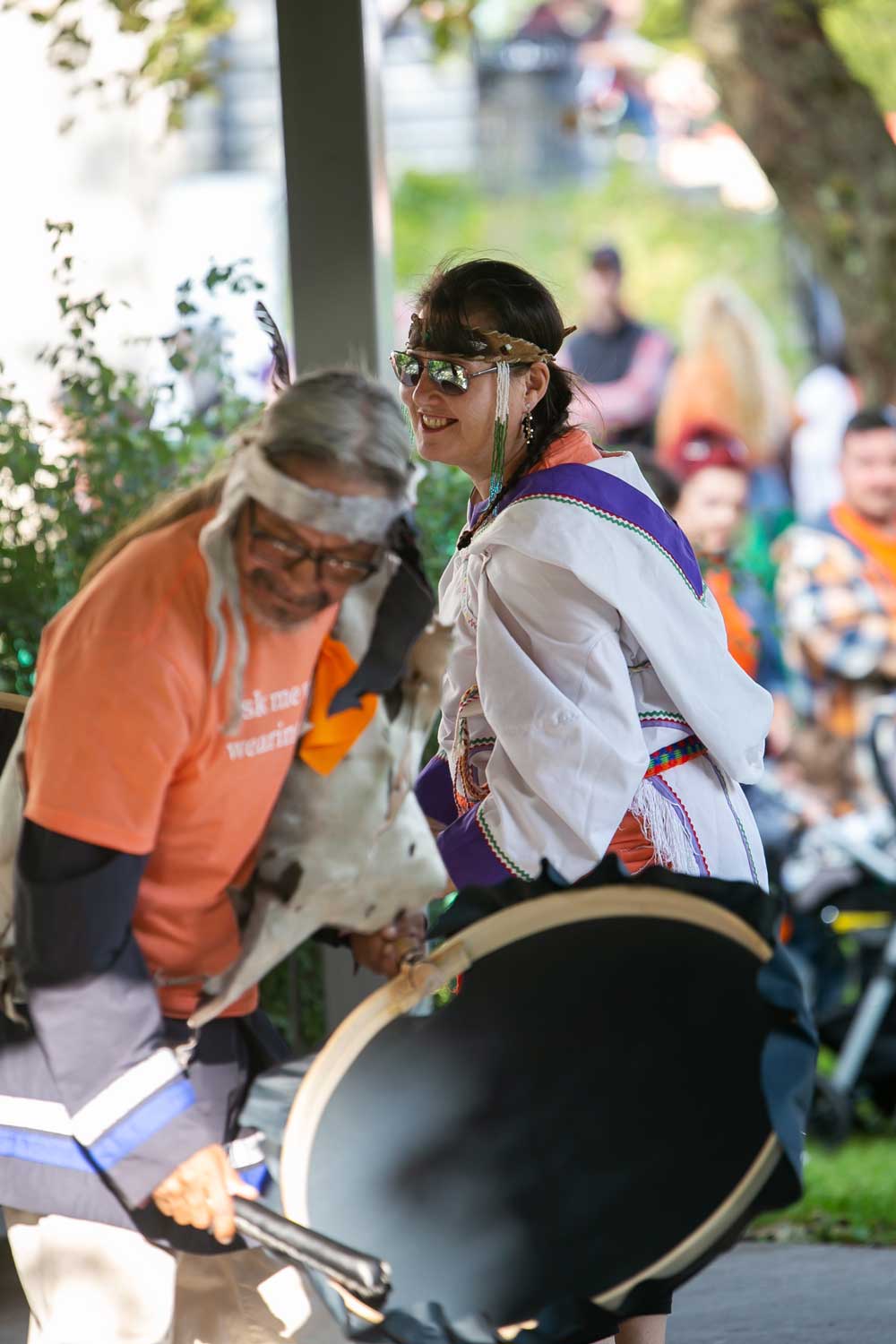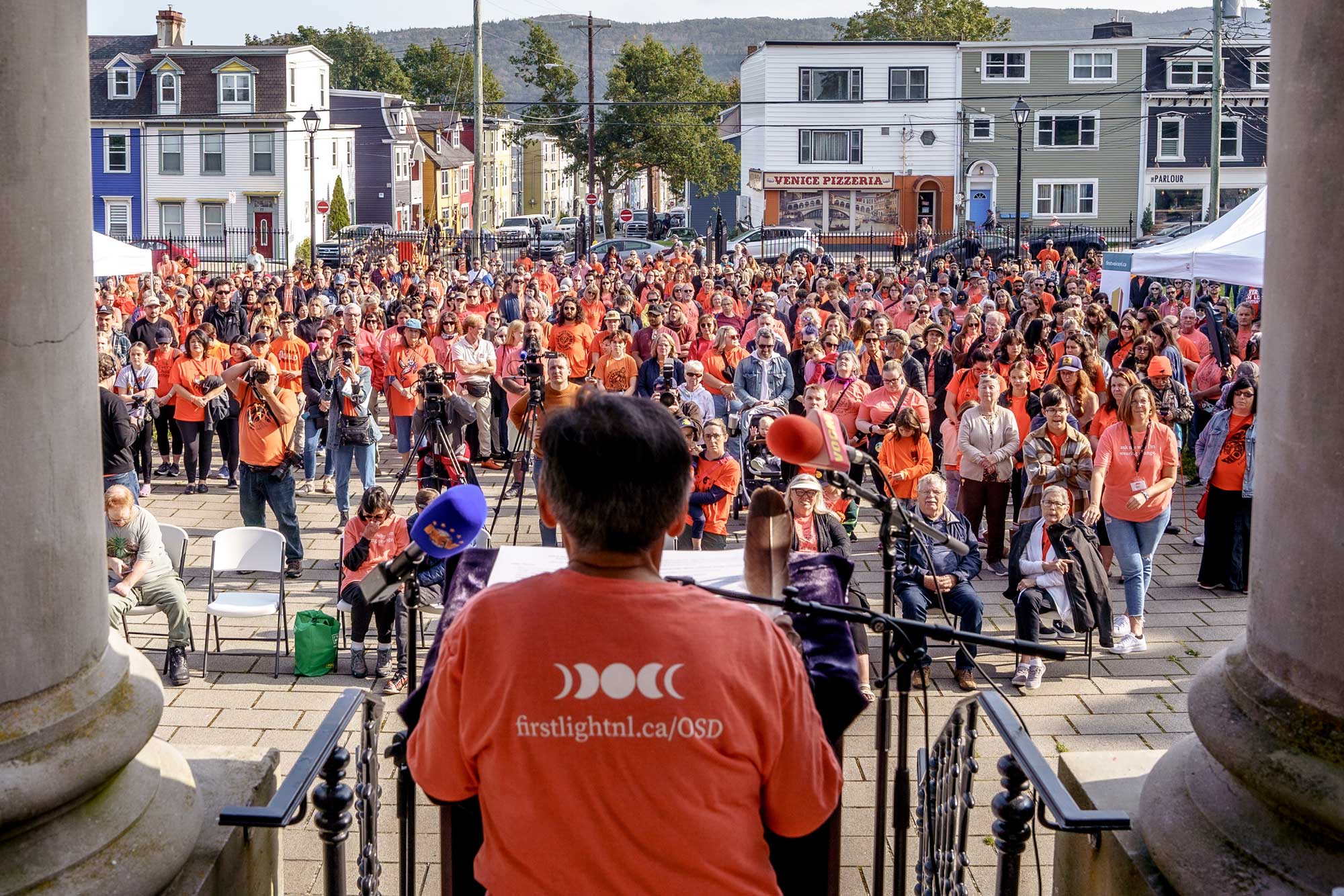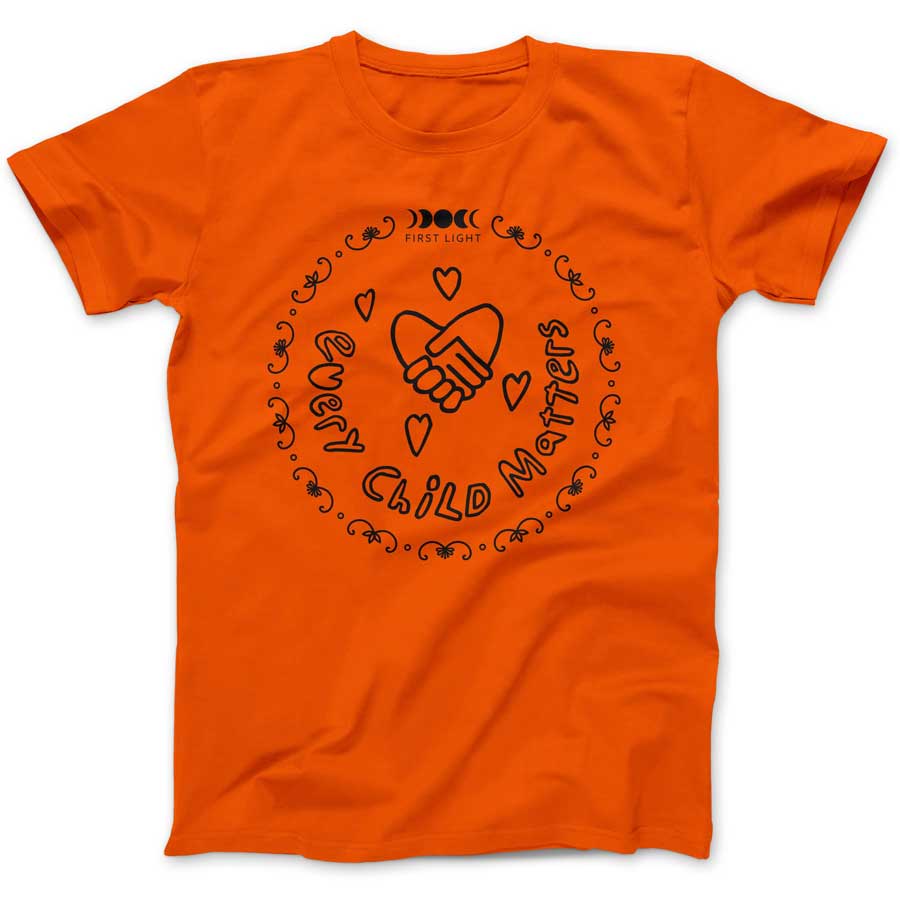Reflecting on Truth, Committing to Reconciliation
First Light is calling on everyone to wear orange on September 30th to show solidarity with those who survived residential schools across Canada and to remember those who never made it home.
We also encourage you to wear your orange shirt any day of the year to show your support for decolonizing spaces, educating others, and recognizing Indigenous rights.
Ways to Support
Wear Orange
When you purchase and wear an orange t-shirt, you’re making a commitment to learning and raising awareness.
We encourage everyone who wears it to take a proactive role in educating themselves about the history and significance of Orange Shirt Day.
Attend the Rally for Reconciliation
Each year on September 30th, First Light hosts a Rally for Reconciliation in recognition of Orange Shirt Day and the National Day for Truth and Reconciliation.
This day serves as a powerful reminder of the truth behind Residential Schools and the ongoing impact on Survivors and their families. While wearing orange is a meaningful gesture, true reconciliation requires action and allyship.
Join us as we listen, learn, and stand together for change.
Save the Date
| Date: | September 30th, 2025 |
| Time: | TBD |
| Location: | TBD |
Not sure where to start?
Explore the available resources below to deepen your understanding of Orange Shirt Day and its significance.
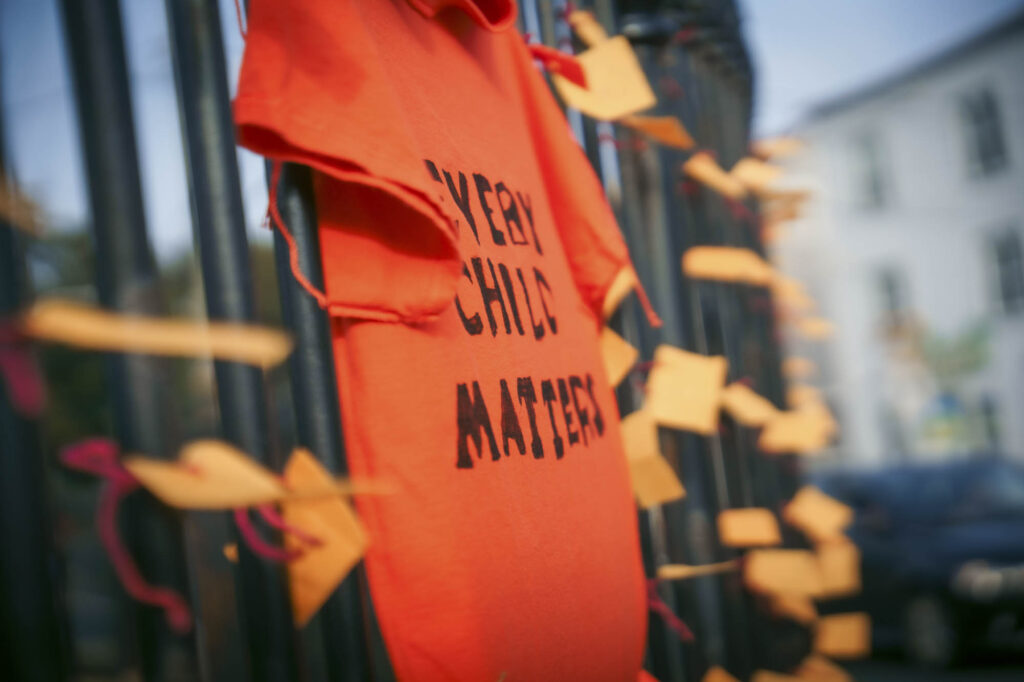
Promote Systemic Change
Orange Shirt Day is an opportunity to promote positive systemic change in St. John’s and across Newfoundland and Labrador. We encourage everyone to learn about the First Voice 42 Calls for Change and to join our work to advance truth and reconciliation right here at home.
Donation
All profits from our orange shirt sales go towards the development and creation of our Residential School Memorial Garden, led by Elders & residential school survivors.
FAQs
Gallery
